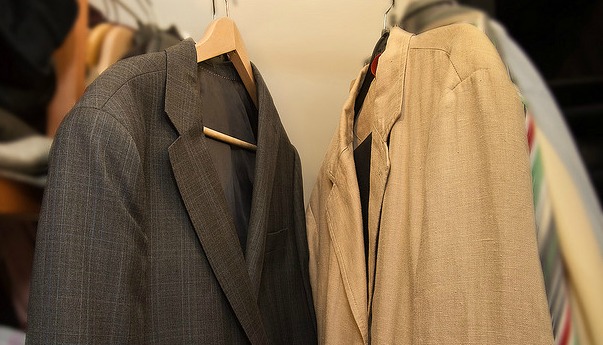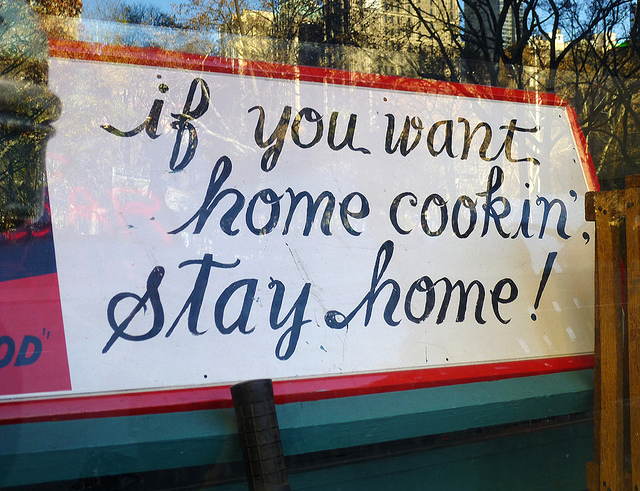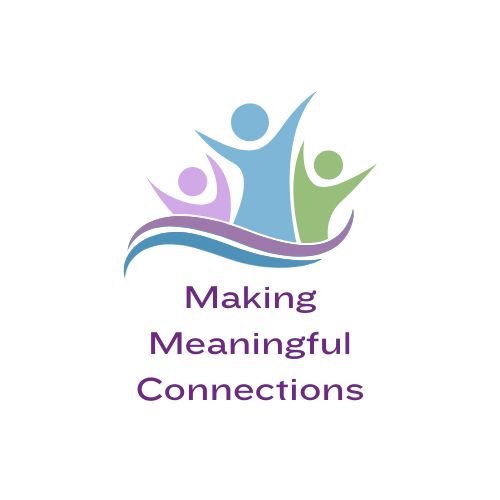
by Barb Abramson | Dec 30, 2014
Several years ago, after coming to the painful realization that they could not take care of themselves any longer, I moved my parents to an assisted living facility.
I did my best to keep them in their home, hiring caregivers to come by daily for a few hours each day, which was all I could afford. I began cooking their meals and helping out as much as I could, grateful I already had power of attorney for both of them so I could pay their bills and handle other details of their lives. It was exhausting, even with help. Their expenses were greater than their income from pensions and social security. Dad was diagnosed with Alzheimer’s. Mom had diabetes, congestive heart failure and was on oxygen. Life as they knew it had to change.
It took some time to adjust to the ALF, but I knew it was where they needed to be. Dad was eventually moved over to memory care as his disease progressed. I learned a lot about memories in the process which helped me to help others who are caring for people who have dementia.
They passed away within three months of each other. Now, nearly four years later, I have begun the process of sorting through all the extra things that ended up at my home after theirs was sold.
Clothes that would not fit in their much-smaller apartment now crowd my closets. Boxes of books and memories I wasn’t ready to explore or let go of still line the inside walls of my garage. The door to my back bedroom is kept closed to hide additional boxes stored there. More of their clothes are strewn on the hide-a-bed couch that used to accommodate guests before my parent’s surplus possessions overtook the comfy cushions
I finally reached the point of being ready to sift through some of the piles. Grief defies all things rational and rendered me unable to deal with the their things. It was painful to go through them, and yet I was grateful to have them.
I started with clothes that were on the couch; Dad’s suits, Mom’s dresses, and some various sweaters, blouses and shirts. Some of them were stained, from hanging in the closet too long, as well as from wear.
Looking at each piece of clothing was a journey down memory lane. A favorite dress of Mom’s, Dad’s wild floral tie I made him in the 7th grade because I am Jewish and didn’t want to make the class Christmas stocking.
Then I noticed the white paper peeking out from an inside pocket on one of Dad’s suit jackets. I pulled it out and unfolded the two pages that were stapled together. In my hands was a printout of Mapquest directions to a church in a neighboring city dated May, 2006. A friend of Dad’s had passed away. He had printed out directions to the funeral. In the pocket on the opposite side was the program from the funeral.
I began checking each item of clothing for hidden treasures. The next suit yielded another surprise. A spoof on a song that I grew up with – My Grandfather’s Clock, turned into My Grandfather’s Kit – written for my son Joel when he was a baby. Dad had put together an assortment of baby products and toys and written a little diddy to go with it. My dad the creative performer! Makes me smile thinking about it.
A man’s suit coat is fun to rummage through — there are so many pockets. Outside ones with flaps and more pockets nestled away on the inside.
As I continued exploring I found a candy wrapper, it’s contents long gone. He used to keep them in his pocket during Shabbat services in case he or mom had a scratchy throat or a cough. Speaking of services, two tickets for the High Holiday (Rosh Hashanah and Yom Kippur) the Jewish Holy Days. They are listed for the year 5767 in the Hebrew calendar, that would be 2006, more than eight years ago. Two finds from 2006. It must have been the last time he wore suits.
Another wrapper. Antacid tablets. I see any kind of antacid tablets today and still think of him. Dad had what he called a nervous stomach. I think it was just heartburn. He had a penchant for foods like garlic and onions.
A silver paper clip attached to a very young picture of one of my cousins. It is dated April, 1958, the year before I was born. Odd this was in his pocket. I wonder why he carried it with him.
A pen with the real estate company he worked for so many years ago printed on it. He sold us our first house and gifted us back his commission. A note in the same pocket (written with the pen?) to remember call the library about a book he had on reserve.
I would have loved to sit with Dad on the couch, chatting about the treasures I found and maybe pulling a story or two from him as we laughed about the paper clip and antacid wrapper. I wonder what the book was that he’d reserved, and if he ever read it.
It may seem silly to some, but for me, every memory I discovered in my father’s pockets made me smile and then miss him all the more.
You may also want to read: How Losing My Father to Alzheimer’s Helped Me Find Joy for Others
Photo: Flickr
Previously published on TheGoodMenProject.com

by Barb Abramson | Dec 9, 2014
My husband and I recently stopped for dinner at a local eatery that had gluten-free options. The chain is a step-down of a national chain, but not quite fast food. You order at the counter, are given a number for your table and servers bring your food to you.
The food is delivered to your table as available, so if your dining mate’s food is ready first, it is brought to the table and yours will come when it is prepared.
It’s a fairly easy system. If you are seated near the open kitchen area you can see your food being prepared and hear the banter of the staff: cooks, servers, and managers, as they prep, stage, and deliver your food.
On this particular evening, my food was brought to me and I immediately noticed it was not what I had ordered. As I looked up to let the server know, what I saw was her back as she had literally placed the food in front of me then headed off in another direction without as much as “here you go.”
Being gluten-free often means I get my food after everyone else as it has to be prepared separately and I am OK with that. But if it is not prepared correctly or is the wrong order, it adds to the wait.
But being gluten-free isn’t the point.
What’s Up?
I finally flagged down our server and she approached our table with “What’s Up?’ and an irritated attitude that reached us before she did.
I explained my order was incorrect and without a word of apology or even acknowledgement, it was snatched away and we heard some not-so-pleasant conversation as she berated the cooks because “they” had made the wrong dish. I noticed the manager was within earshot, saw him frown and turn away.
One would hope that a botched order would get high-level attention. Not the case in this case. We watched while several other customers who came in after my order was returned, got their food, then finally we heard the cook call out my food order. Again, it was gluten free so there had been an added wait.
Then it went up in the window. Our waitress walked by it three times before I politely and yes, I mean politely, asked if it was ready. I didn’t let her know I knew it was. Again, no response as she wheeled around, picked it up, and in one sweeping motion as she walked by our table, delivered the food without a word of acknowledgement, or apology for it being wrong the first time, or even eye contact.
None of the employees seemed to be having a good night. I wasn’t exactly having a blast either. Everyone in the place seemed to be irritated with each other and not once did a manager stop by to say hello, check on customers, or, since he was aware that we’d had a wrong order, offer an apology.
What I did get was a 5 Point Checklist for making sure MY customers don’t have a similar experience.
#1: You can’t afford a negative attitude.
I have no idea why our server was in a bad mood. Something could have happened at home. She might really hate her job. But what she conveyed to the customers of the restaurant was it was an inconvenience to take care of them and she didn’t really care to do so.
Had this been an isolated incident that just involved her, I might have been able to overlook it.
#2: Bickering among employees leads to negative attitudes.
Employees who interact negatively with each other in front of customers is a huge turnoff. It’s awkward and embarrassing. It shows a lack of respect for each other, the owners of the company and themselves.
#3: Lack of empathy tells the customer that they don’t matter to you.
As a customer, I want to be heard. I want my order to be heard correctly and if there is a problem, I want to be acknowledged and know that someone cares to make it right. I want to feel as though I matter.
#4: Leadership has to set the tone, and step in to correct the problem.
A manager, who does not step in to help remedy a situation and joins in with his bickering employees, shows an incredible lack of leadership. He or she fosters the negative environment and the message customers get is that their needs are less important than the issues the staff is arguing about in front of them.
#5: There is no substitute for value.
No matter how great the food is, or the cost, poor service and lack of caring for the customers will negate any benefits in a heartbeat.
Whether you are a restaurant, retail store or any other business that deals with the public, unhappy employees will kill the profitability of a business. Customers don’t need a lot of reasons to take their dollars elsewhere. Loyalty doesn’t always lead the way or have the weight it used to, especially when there are so many other companies vying for the customer’s business.
Creating Happy Customers
It’s important to recognize that, while most bad experiences aren’t this obvious, not following this 5 Point Checklist affects the customer relationship even in little ways.
So if you have a business, as my husband and I both do, I hope this checklist also helps you create happier customers, and happier team members. Especially if you are one of the team!
Previously posted on The Good Men Project and Manifast Now
Photo: Flickr

by Barb Abramson | Dec 4, 2014
I wake up most days alone. Not because I am single. I am in fact married. And not because I sleep in another room. I wake up alone because my workaholic husband has gone to work long before the sun is up.
When he gets home, he says hello to the refrigerator before he greets me. Most likely he didn’t eat breakfast or lunch.
He says has to leave early to prep for the day. On the weekends, he has to prep for the next day or the week. He writes and then rewrites the same notes over and over. Yes, he is a little OCD.
His reasoning runs along the lines that as a business owner, no one will care as much as he does. If he doesn’t make the sacrifices, and work early to late six days per week and sometimes seven, then the business might fail.
What he doesn’t get is that what is failing is his health in more ways than one.
His legs ache and he often wakes up with leg cramps. His back aches and he never quite stands up straight. His mind aches because he doesn’t have an off button. He will talk about work at any given moment he is awake. Sometimes I wonder when the business is finally gone, will we have anything to talk about.
He has a nervous cough that surfaces when he is worried about a job. I always know when he is nearby because of that darn cough. I can hide from him in the grocery store, but he can’t hide from me! He doesn’t go to the doctor unless it is an emergency. That would mean taking time off from the JOB. Eating right is not on his radar either
One night a week he does take a break. It’s his bowling night. I am excited for him because he gets to do something fun. “Good luck and good bowling” I cheer as he drags his tired body out the door.
His bowling friends are all retired. They bowl during the week. Some play tennis too. And go on cruises often. I mean very often. They send me notes on FB and emails asking me to talk to him about taking it easy at work. At least on bowling day. Thanks guys!
How do I get Mr. Workaholic to work a little less? The funny thing is he tried once. He retired his parents and tried to walk away from the business. But eight months later, he opened up again and he was off and running.
The only way he gets a break is if I book us to go somewhere. He protests. He even backs out on occasion. He calls the business everyday, several times a day to talk to the staff. He can’t unhook for long.
The worst part is when he gets back. Actually on the way back. He kicks right back into work mode and is incredibly stressed about catching up. He doesn’t sleep well that first night home and is up reviewing the job, and heading in (of course early) to get started.
My biggest fear is that when he finally does retire, he will be too physically worn down to enjoy the rest of his life. I hear stories all the time about men like him who reach that pinnacle and don’t have a lot of time left. I don’t want to put that out to the Universe – so I try not to let his stress become my stress.
The good news is he doesn’t drink or smoke. His work is physical, so he gets exercise in his own way, but many men who are workaholics with office jobs don’t.
His employees leave their jobs behind when they clock out, but for this entrepreneur who is driven to provide for his family, (put food on the table, mortgage payment, car payment, children’s college tuition, etc). it is slowly but surely wearing him down.
I’m booking a 5-day cruise for us. I know he will be stressed on the way back. But at least he won’t be able to call the business for a few days!
Previously published on Talking About Men’s Health
Photo: Flickr



